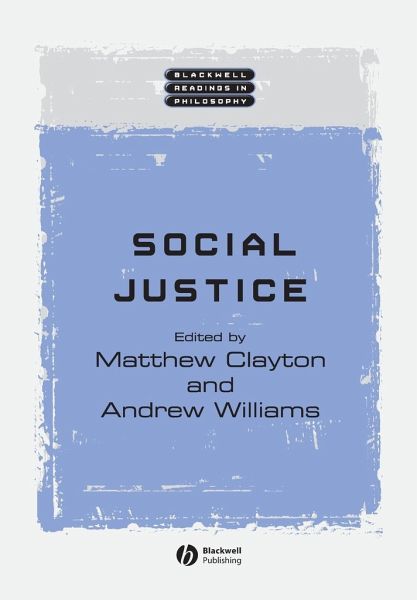Nicht lieferbar

Social Justice
Versandkostenfrei!
Nicht lieferbar
This reader brings together classic and contemporary contributions to debates about social justice.A collection of classic and contemporary contributions to debates about social justice.Includes classic discussions of justice by Locke and Hume.Provides broad coverage of contemporary discussions, including theoretical pieces by John Rawls, Robert Nozick and Ronald Dworkin.Contains papers that apply theories of justice to concrete issues, such as gender and the family, the market, world poverty, cultural rights, and future generations.Philosophically challenging yet accessible to students.
This reader brings together classic and contemporary contributions to debates about social justice.
A collection of classic and contemporary contributions to debates about social justice.
Includes classic discussions of justice by Locke and Hume.
Provides broad coverage of contemporary discussions, including theoretical pieces by John Rawls, Robert Nozick and Ronald Dworkin.
Contains papers that apply theories of justice to concrete issues, such as gender and the family, the market, world poverty, cultural rights, and future generations.
Philosophically challenging yet accessible to students.
A collection of classic and contemporary contributions to debates about social justice.
Includes classic discussions of justice by Locke and Hume.
Provides broad coverage of contemporary discussions, including theoretical pieces by John Rawls, Robert Nozick and Ronald Dworkin.
Contains papers that apply theories of justice to concrete issues, such as gender and the family, the market, world poverty, cultural rights, and future generations.
Philosophically challenging yet accessible to students.



